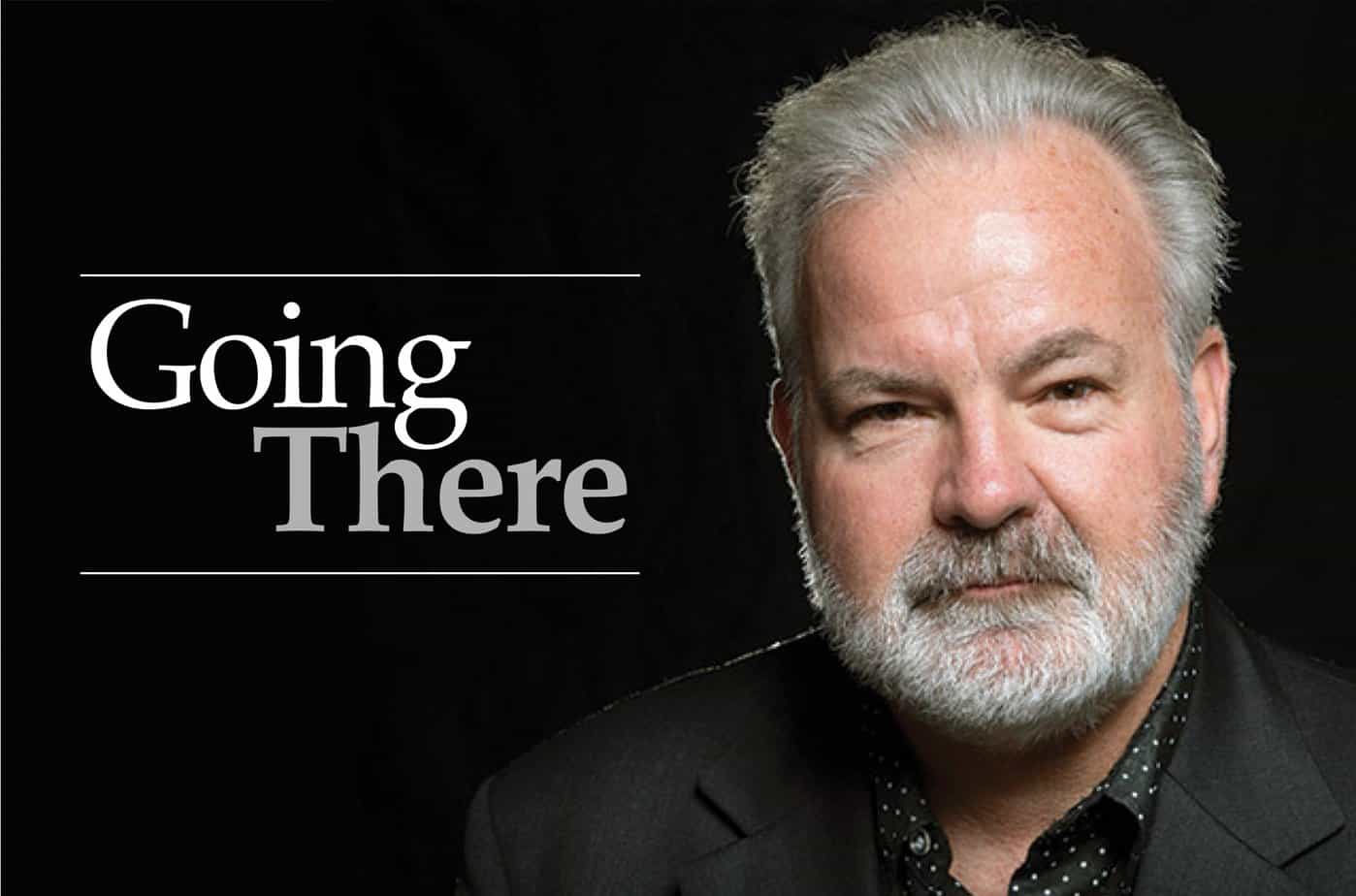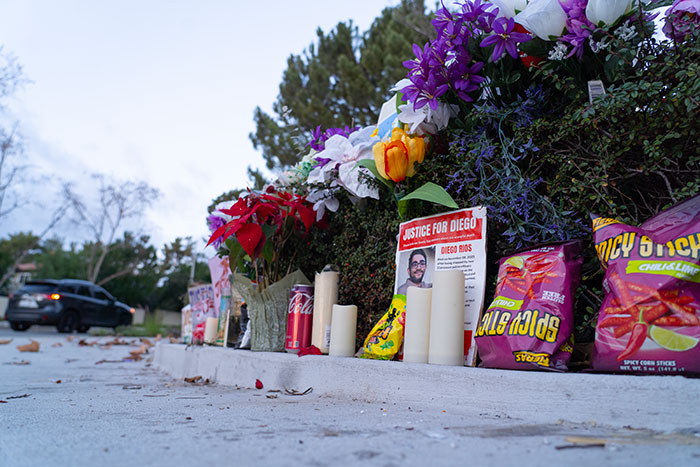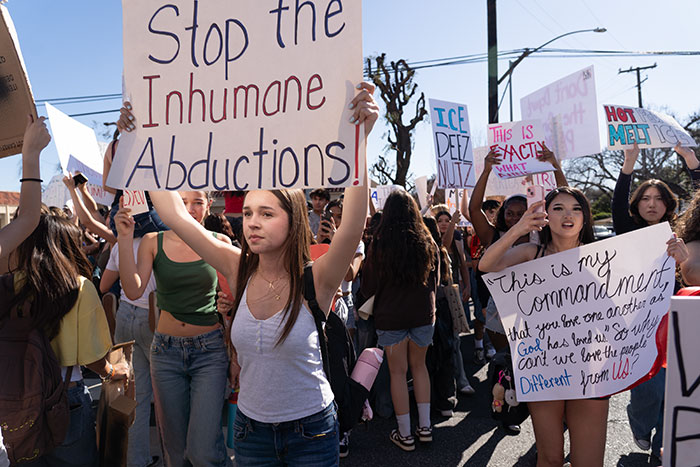Making music: the act is reward enough

by Mick Rhodes | editor@claremont-courier.com
It’s been 45 years since I hid under a table in a rehearsal room at Citrus College and sang “Come Sail Away” by Styx, tanking my audition for my older friends’ nascent cover band.
Since that awkward 1978 debut I’ve spent the ensuing years pursuing — sometimes with gusto, other times with only mild attentiveness — some sort of musical fulfilment. I’ve managed to move the ball down the field a handful of times, furthering my “career.” Mostly though I’ve failed quietly, and sometimes spectacularly, in public.
But that’s not been the point.
To borrow a line from the great Ron Sexsmith, music is a “forever endeavour.” It’s something you “practice” throughout your life. There’s no “arrival,” at least for me. It’s a constantly fascinating, maddening, exhilarating, frustrating, and never-ending journey.
That I’m still doing it at near 60 got me thinking (and writing) about my musical path, which a handful of times has reached heights I could have never imagined but has mostly meandered along the underside of notoriety and acclaim. Both experiences have been valuable.
People say the worst day fishing is still better than the best day at work, or something like that, and music is like that too. Even the most embarrassing trainwrecks make for great stories later. I’ve performed in stunningly beautiful venues and desperately dank dive bars. I once played in a wrestling ring surrounded by chain link fencing, Blues Brothers style. I’ve done weddings, memorials, outlaw biker gang parties, and arenas.
After thousands of jobs, I can say with clarity that each failure and each “win,” as we call the good gigs, has served to advance my education.
All the bad gigs have one thing in common: a lack of connection. Being a gray-haired guy in a rock ‘n’ roll band, if I fail to connect with an audience, I no longer take it to heart. Instead, I chalk it up to my schooling and move on. Though it’s taken me longer than it should, I’ve come to realize performance is all about that connection, and every now and then you just can’t make it happen.
But when it does, when you are one with an audience, no matter the size, it’s an unencumbered bliss state of shared joy. I can only compare it to witnessing a child being born or falling in love. This best case scenario doesn’t happen every time, but it happens enough to inspire me to keep doing it. Just knowing it’s a possibility is all the motivation I need. It’s that sweet a sensation.
Though writing or rehearsing music can be a solitary exercise, playing music is usually a group effort; you’re part of a larger machine. I’ve heard it said this is why musicians’ brains get so much serotonin and dopamine during the collective synchronicity of performance.
A widely shared meme sums it up nicely: “Musician: someone who puts $5,000 worth of gear into a $500 car and drives 100 miles for a $50 gig.” That may sound ludicrous to the uninitiated, but it’s not that far off for some folks I know, myself included at times. I suspect the impetus of this meme was to poke fun at musicians, and it certainly works on that level. But it’s also exposing the lengths to which we will go for the payoff, which, as noted above, isn’t always about money. It demonstrates what me and many of my peers have known for decades: playing music is good for you.
A recent study by the U.K.’s Centre For Performance Science titled “Sing with Us” was aimed at determining “whether singing affects mental health, wellbeing, quality of life, and social support for people affected by cancer.”
“A pilot study with 193 participants revealed that a single choir session reduced stress hormones and increased levels of immune proteins in people affected by cancer,” read the study. “The longitudinal aspect of the study showed that singing significantly decreased anxiety and increased wellbeing for carers and improved self-efficacy and self-esteem for those who had been bereaved. Qualitative data explored the mechanisms behind these effects, highlighting building resilience and meeting existential changes as key components of what enabled singing to result in these benefits.”
Yes!
Getting to the point where I felt the positive effects of performing took time. I was 15 when I started playing in bands, and at first the primary emotion I felt was terror, followed by exhilaration when it was over and I hadn’t been exposed as a fake. Over time that exhilaration increased, the terror subsided, and I began to enjoy it.
Now all these years later I savor performance. It’s a chance to lock in with like-minded humans and make something uniquely ours, on the spot. As noted above, in my experience there’s nothing like it.
Later this month I’ll release my seventh record. Early on I had grand hopes for my records, along the lines of, “This one’s gonna put us on the map!” Now though, after so long and being so old, I’m realistic. The truth is this one’s not likely to change much of anything. Still, I’m immensely proud of these songs, and I love that more tangible evidence of our band, and my life, will now exist in the world. Whether or not it finds a wider audience is beside the point. We made this. It’s good. And that’s enough for me.
2 Comments
Submit a Comment
You must be logged in to post a comment.







So where can your records be purchased?
iTunes, Amazon, etc., at a local performance, or you can email me at editor@claremont-courier.com for more options.